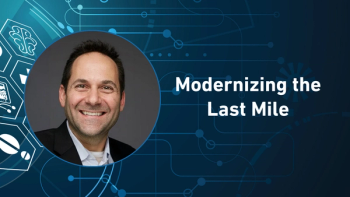
- Pharmaceutical Commerce - September 2009
Market Researchers Offer Targeted but Economical Surveys, Fact-Finding
‘Managed Market Delegates on Demand’ is one; ‘Ask IMS’ is another; meanwhile, online communities offer on-demand access
Fullbore, custom research projects are the usual method for developing marketing and commercialization plans, but—in recognition of the tight finances of biopharma today—two market research leaders have announced new ways to tap into their data pools.
IMS Health (Norwalk, CT) has launched “Ask IMS” with the specific goal of helping early-stage biopharma companies obtain “evidence-based insights to develop and integrate commercial thinking early on and throughout the development process,” says Jim Mahon, GM of product and portfolio management. Clients (currently, US only) can leverage IMS’ syndicated market audits worldwide for information on sales and prescribing trends, primary disease treatment patterns and promotional activities.
At GfK Healthcare (Blue Bell, PA), a quarterly “omnibus” study called Managed Markets Delegates on Demand is available for subscription; it is sourced from a standing panel of 20 pharmacy directors and 10 medical directors from managed-care organizations with over 100,000 member lives. The quarterly report, which allows for individual polling questions to be added, can provide a “sanity check” on topics, such as formulary decisions, that “may not be robust enough for a primary research study but are important to ask,” says a company statement.
“This new offering is extremely timely in today’s market where budgets are being cut around research in general,” says Sue Ramspacher, SVP of GfK Healthcare’s Managed Markets Practice Area. “Overall, clients are being more judicious in the research they are fielding.”
Tapping into the medical community
Meanwhile, Sermo.com (Cambridge, MA), seeking to capitalize on what it says is a diverse membership of 115,000 actively engaged physicians, is now enabling market researchers to set up ad hoc panels of 10-30 physicians to run surveys or lead discussions. The panels can be segmented by medical specialty, demographics, geography or other criteria; Sermo also allows the panel to be populated by client-specified participants (provided that they are Sermo users).
“Sermo Panels are game-changing market research tools,” said Gina Ashe, cofounder and CMO of Sermo, “they enable businesses to mine—on demand—expert medical opinion while eliminating the traditional costs associated with offline market research such as travel, venue, and recruitment expenses.”
The service comes in two versions: Sermo Panels Express, which is set up and run online by the client, and Sermo Panels, for which Sermo provides a moderator, assistance in assembling the panel, and data analytics. The former, intended for ad agencies or general consumer-products market research, is under $10,000; the latter, more specific to the needs of the life sciences industry, is $16,000. Depending on how the panel is set up, participating physicians earn honoraria of a couple hundred dollars.
“Sermo has developed a very trusted environment where physicians feel free to exchange honest opinions and provide very hands-on information,” says Greg Schenk, marketing director. “This comes from our tight control of membership—only licensed physicians can belong—and from what you might call the ‘wisdom of the crowd’ in that members police themselves.”
Sermo—which doesn’t accept pharma industry advertising dollars—should certainly be excited about a new revenue stream; at the same time, customer-relationship or e-detailing providers like Cegedim-Dendrite, Aptilon, Physicians Interactive and others also provide access to healthcare practitioners, and surround that access with a variety of analytical tools. The race is on to be first with the best access and business knowledge. PC
Articles in this issue
about 16 years ago
Industry Feeds a Fever Over Cold Chain Regulationabout 16 years ago
Bristol-Myers Squibb, Roche Lead on Environmental Sustainability Scoringabout 16 years ago
Biopharma Needs to Adopt 'More Radical' Cost-Cutting, Says Capgeminiabout 16 years ago
GHX Electronic Trading Platform Gains More Healthcare Participationabout 16 years ago
Coupons, Vouchers and 'Loyalty' Cards Connect Drugmakers With Patientsabout 16 years ago
Industry Mergers Reshuffle Animal-Health LeadershipNewsletter
Stay ahead in the life sciences industry with Pharmaceutical Commerce, the latest news, trends, and strategies in drug distribution, commercialization, and market access.




